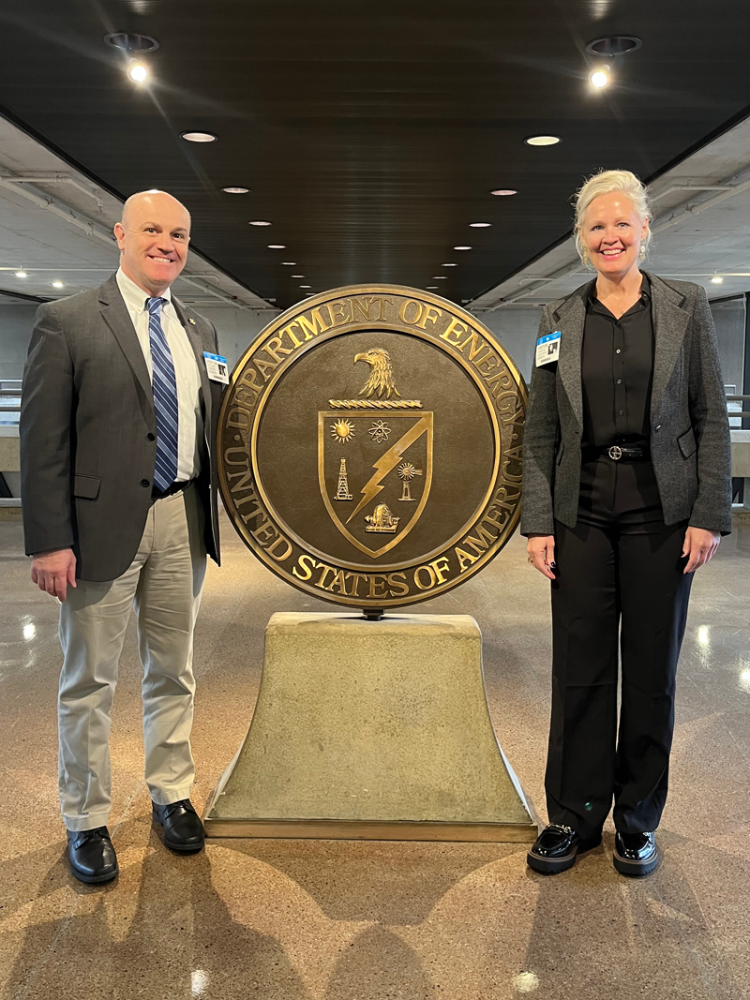CU Boulder research and innovation leaders visit DC, talk quantum, workforce and more
An important role of the University of Colorado Boulder as a top-tier research university is working closely with state and federal policymakers to advocate for robust funding for university research and education, ensuring effective coordination on ongoing projects, and proactively identifying and exploring opportunities for future collaborations to advance the mission of the university while benefiting the people of Colorado.

Massimo Ruzzene and Chris Gustavson discussed CU Boulder and State of Colorado priorities with leaders from the Department of Commerce, the Department of Energy and the National Science Foundation.
This March, CU Boulder vice chancellor for research and innovation and dean of the institutes Massimo Ruzzene spent several days in Washington, D.C. to advance this important agenda.
During the visit, Ruzzene and colleagues from CU Boulder and the four-campus University of Colorado system met with congressional and federal leaders about university efforts spanning areas such as the National Science Foundation (NSF) Colorado-Wyoming Climate Resilience Engine, workforce development progress across several industries, important quantum science and technology advances—including Colorado’s recent TechHub designation—and more.
Meetings with Colorado Congressional delegations—including the offices of Senator Michael Bennet, Senator John Hickenlooper, Representative Joe Neguse and Representative Brittany Pettersen—gave special attention to recent workforce development achievements, especially in semiconductor and quantum sectors. Of particular interest to state delegations was the recently announced Quantum-Ready Workforce Vision document, and ongoing progress on a detailed roadmap to create a coordinated Quantum Information Science and Technology (QIST) workforce ecosystem for Colorado.
Ruzzene also advocated for increased commitments and funding from NSF, a key funder of research at CU Boulder and other leading U.S. universities. In addition to expressing gratitude on behalf of the entire university for critical support from agencies such as NSF, the Department of Commerce and the Department of Energy, Ruzzene and agency leaders discussed future partnership opportunities to benefit students and researchers at CU Boulder while addressing challenges facing Colorado and the nation.

